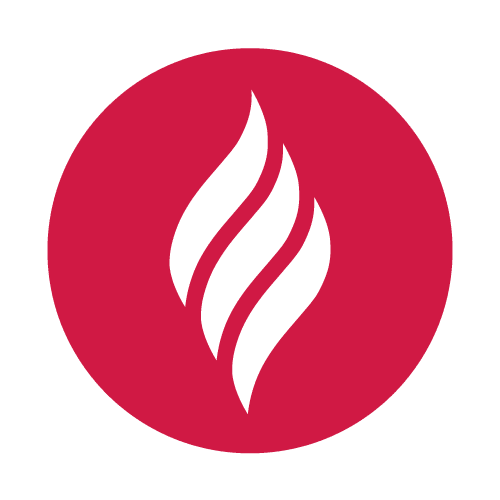Reading time - 5 minutes, 9 seconds
Wildfires can occur anywhere. Most wildfires in the US occur in California, Texas, North Carolina, and Georgia. Wildfires can also happen in Washington state and other forested, grassland, or prairie land areas. As development continues to stretch outward, homes and businesses close to these areas might be at risk. Climate scientists call this “wild-and-urban interface.”
This year, California residents might experience fire weather earlier than normal. Typically, wildfire season occurs in the late summer months, when areas become dry and hot. However, residents in California are starting to receive wildfire alerts in May 2021. The National Weather Service suspects this might have something to do with gusty north winds and overly dry conditions.
Common Wildfire Preparedness Questions
What is a Wildfire?
A wildfire is an unplanned or unwanted fire burning in a natural area. Wildfires can damage resources, destroy homes and businesses, and pose a public safety risk to everyone.
When Does a Wildfire Happen?
It might surprise you to learn that wildfires can occur at any time of year. But they’re much more likely to happen during periods of limited rainfall. That’s because when there’s no rain, brush, grass, and trees dry and burn much more quickly. High winds also factor into wildfires since they can contribute to the fire spreading.
Where Do Wildfires Happen?
It’s true that wildfires are more likely to start in certain parts of the country. But the fact is that a wildfire can start anywhere - from remote wilderness areas to national parks, even in our own backyard. Wildfires can be caused by natural causes like lightning. Sadly, most wildfires are actually started by people - accidentally from cigarettes, outdoor burning, and campfires, or intentionally.
What’s the Impact of Wildfires?
Wildfires are devastating, both to the natural environment and to people. The federal government allocates almost $2 billion dollars a year to deal with wildfire suppression. Wildfire destruction depends on the size of the fire and the landscape of where the fire rages. Wildfires can cause death and injury to both people and animals. Sometimes, wildfire embers can set fire to buildings more than a mile away from the wildfire itself.
If your community is under evacuation orders, it’s imperative that you listen to the directions of your local Command. LMH will always coordinate with your installation command. If an evacuation is announced by your installation, Liberty Military Housing will replicate that alert to our residents using our Emergency Notification System, RedFlag. To ensure you receive RedFlag alerts, please update and verify any contact information with your local district office.
How to Prepare for a Wildfire
Wildfire season can be scary, but with the right preparation, you and your family can stay safe. Wildfires have the potential to happen anywhere and at any time, but most often happen during seasons with little rainfall.
Having a well-thought-out Wildfire Action Plan (WAP) can help ensure you and your family remain safe in the event of a wildfire. Your WAP might look different from your neighbors, and that’s okay. Each family plan will depend on lots of different factors, needs, and overall situation.
Make sure you plan for the upcoming wildfire season with COVID-19 in mind. You might need to have several places to stay available in the event that one of your relatives has COVID-19 symptoms and is self-quarantined. Look into hotels, campgrounds, and motels in your area that might be able to accommodate you and your family if you need to find another arrangement.
Create a WAP checklist that includes detailed instructions on where your family should meet. Make sure everyone in your family knows the surrounding area outside of where the fire is burning. This might take some exploration of the area and identifying the safest place. If you’re unsure of where to go in the event of a fire, contact your local District Office for suggestions.
Your WAP should also include different options for evacuating. Remember that one path might be blocked, so it’s important to have many different choices. Practice evacuation drills with your family so everyone knows what to do.
Don’t forget about your animals! You’ll need to include them in your WAP too! This is very important, especially if you have several animals.
Consider creating a Family Communication Plan. The FCP will help you and your family communicate with one another in the event of an emergency.
Make sure that you’re prepared. Inside your home, have easy access to fire extinguishers. Make sure everyone in your family knows how to use them. In the event that your home is evacuated, you’ll need to shut off the gas, electricity, and water using the main shut-off control valves. If you’re not sure where those are located, call your local District Office - we’re happy to help!
Create an Emergency Supply Kit for every person in your family. This kit should have the basic necessities that each person needs - like contact lens solution, medication, and other important items. It might be a good idea to keep an extra kit in your car in case you can’t get home because a fire has blocked your path.
Take some time to program emergency contact numbers into your phone. Include any base numbers you might need, along with your spouse’s unit phone number.
Communicate with your neighbors. Let them know about your Wildfire Action Plan. Engage in conversations with your neighbors about being prepared for wildfire season and how they can ensure the safety of their families, too.
Create a Family Communication Plan
Having the right communication plan in place is extremely important during wildfire season. If you need to evacuate, there’s a chance that your whole family might not be together. So it’s important that you make a plan on how to contact one another. You also should discuss how to communicate in different disaster situations. Make sure to base your family plan on your individual needs. If you have young children, they need to know what to do in case of a fire. Preparing ahead of time by practicing your plan is also a good idea.
What Should You Include in Your Family Communication Plan?
Before wildfire season gets underway, make a list of emergency contacts. Put these numbers in your phone. Make sure to include any relevant installation phone numbers too.
Prepare a family contact sheet with the names, addresses, and phone numbers of important contacts. Be sure to include family members who are out of town that you might need to contact. Sometimes during disasters, it’s easier to make long-distance calls than local calls. Write this list by hand or type and print it and then include a copy in your emergency supply kits for each family member.
Make sure everyone in your family understands the plan. Consider what you will do if your spouse is in the field during the event of an emergency. What happens if your spouse doesn’t have access to a phone? That’s one of the reasons why it’s important to include base unit phone numbers on your phone list. Think about what might happen if you’re unable to reach your spouse but need to evacuate. Create a plan that will help ensure everyone knows what’s going on and is safe.
Wildfire season can be disastrous without the right plan in place.
If you have questions on how to best prepare for the upcoming wildfire season, please reach out to your local District Office. We’re always happy to help answer questions. Additionally, please know that LMH will continue to coordinate with your local Command. If an evacuation is announced by the base, Lincoln Military Housing will replicate that alert to our residents using our Emergency Notification System, RedFlag. To ensure you receive RedFlag alerts, please update and verify any contact information with your local district office.
There are many resources available in case of emergency, and Liberty Military Housing is here to help. Have more questions about hurricane preparedness? Reach out to your local district office or connect with us on Facebook, Twitter, and Instagram to stay connected.


